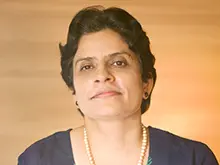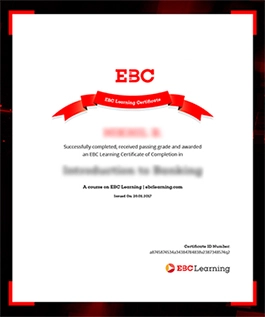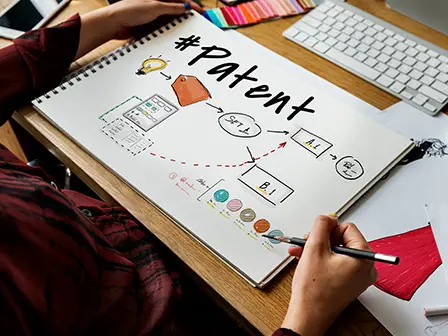Law of Patents
This course is part of a program and cannot be purchased individually.
Patents play an integral role in innovation and economic development. When we speak of innovation in the Intellectual Property context, it may relate to a new way of doing something or a new technical solution to a problem. Patent, that's known to be one of the oldest forms of IP, protects the inventor's rights. Patenting has experienced a sizeable boom in the last decade. This calls for a larger community of professionals to protect and enforce patents, just so that it can continue to fulfil its role of encouraging innovation and technology diffusion. If you are looking at a course that helps you learn the legal basics of patents, how patents are obtained, the rights of a patent holder and the enforcement of patent rights, you're just at the right place! This course will give you an understanding of the fundamentals of patent law and the criteria for patentability. You will also learn about the kinds of patent applications and the procedure for patent filing, surrender and revocation of patents, what does and does not constitute infringement and enforcement of patent rights with case studies. Welcome to the Module on Law of Patents!
This course is part of a program and cannot be purchased individually.

A country without a patent office and good patent laws is just a crab, and can't travel any way but sideways and backways.
Mark Twain- 1. 📕 Introduction to patent law
- I. § Relevant provisions
- 1.1 ▸ Meaning and definition of patent
- 1.2 ▸ Meaning and definition of invention
- II. ✒︎ Exercises
- 2. 📕 Patentable subject-matter
- I. § Relevant provisions
- 2.1 ▸ Criteria for patentability
- 2.2 ▸ Subject-matter of protection of patent
- II. 𝍭 Full text of leading cases
- III. ✒︎ Exercises
- 3. 📕 Patent registration
- I. § Relevant provisions
- 3.1 ▸ Prior art search
- 3.2 ▸ Stages involved in patenting
- 3.3 ▸ Kinds of patent application
- 3.4 ▸ Specification
- 3.5 ▸ Request for examination
- 3.6 ▸ Publication
- 3.7 ▸ Examination of patents
- 3.8 ▸ Opposition
- 3.9 ▸ Grant of patent and renewal
- II. 𝍭 Full text of leading cases
- III. ✒︎ Exercise set I
- IV. ✒︎ Exercise set II
- 4. 📕 Patent rights
- I. § Relevant provisions
- 4.1 ▸ Ownership of patent
- 4.2 ▸ Obligations of patentee
- II. ✒︎ Exercises
- 5. 📕 Compulsory licensing
- I. § Relevant provisions
- 5.1 ▸ Compulsory licensing
- 5.2 ▸ Compulsory licensing in India
- II. 𝍭 Full text of leading cases
- III. ✒︎ Exercises
- 6. 📕 Surrender and revocation of patent
- I. § Relevant provisions
- 6.1 ▸ Surrender of patents
- 6.2 ▸ Revocation of patent
- II. ✒︎ Exercises
- 7. 📕 Patent infringement and remedial measures
- I. § Relevant provisions
- 7.1 ▸ Patent infringement
- 7.2 ▸ Kinds of infringement
- 7.3 ▸ Exceptions to patent infringement
- 7.4 ▸ Bolar exemption
- 7.5 ▸ Freedom to operate
- 7.6 ▸ Remedial measures for patent infringement
- II. 𝍭 Full text of leading cases
- III. ✒︎ Exercises
- I. Examination pointers
- ≛ Exam Pointers
- II. Index (full text of cases)
- 𝍭 Index (full text of cases)
- Learn More
- Learn More on Patents
Why Take this Course?
Can an algorithm be patented? I have come up with a new business method of computing tax. Can I have a patent to it? Well, these are some questions that inventors always approach Intellectual Property professionals with. The role of a Patent attorney range from advising inventors on what is patentable and what is not, assisting them in mechanising their abstract ideas into patentable process, conducting prior art search, drafting specifications and drawing up patent claims. It's not just all, IP lawyers also play an integral role in managing and enforcing the patent owner's rights. An increase in patent grants also calls for lawyers and legal professionals who can understand and manage legal proceedings. If you wish to equip yourself with an understanding of patent laws and procedures, here's just the right course for you. The learning objectives of the course are:
- To apply patentability criteria and analyse whether a given subject-matter is patentable.
- To determine the stages of patenting and the procedures involved therein.
- To analyse the forms of commercialisation of patents.
- To analyse patent infringement cases and its remedial measures.
This course is part of a program and cannot be purchased individually.
Instructors

Dr Pratima Narayan
Advocate & Mediator, Co-founder, Techlawlogi Consulting LLP
Dr Pratima Narayan has served the legal academia for over 20 years as a visiting faculty at various reputed law schools and business schools. Her expertise lies in areas of commercial contracts, consumer law, e-commerce and Intellectual Property Rights.

Presented by: Dr Charu Mathur
AOR, Supreme Court
Dr Charu Mathur is an Advocate on Record with the Supreme Court of India. She has over 20+ years of rich and diverse expertise in corporate, commercial, civil, criminal and constitutional law matters.

Inventions cannot be judged on patent parameters, but patents have the ability to take inventions very far.
Kalyan C KankanalaCertificate
Complete this course and exercises to earn a certificate. Share it with your friends, colleagues, and employers.

Limit Reached or Trial Expired
You have reached the limit of 2 audit enrollments or your trial period has expired.



